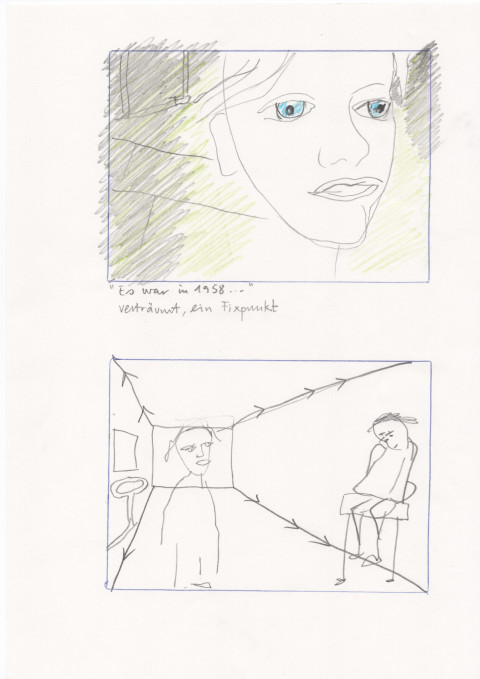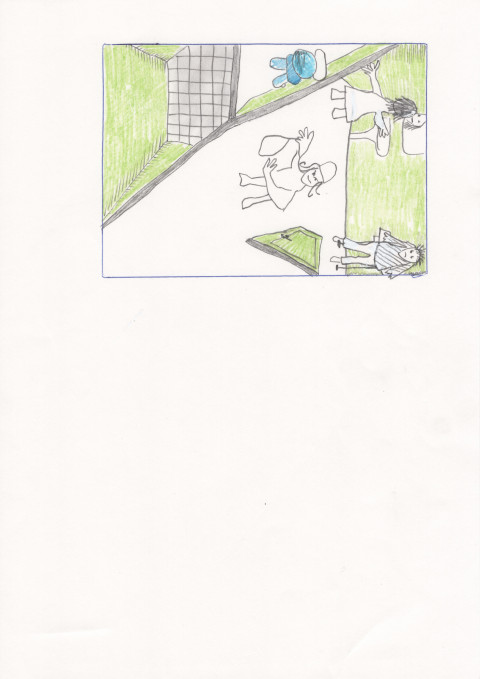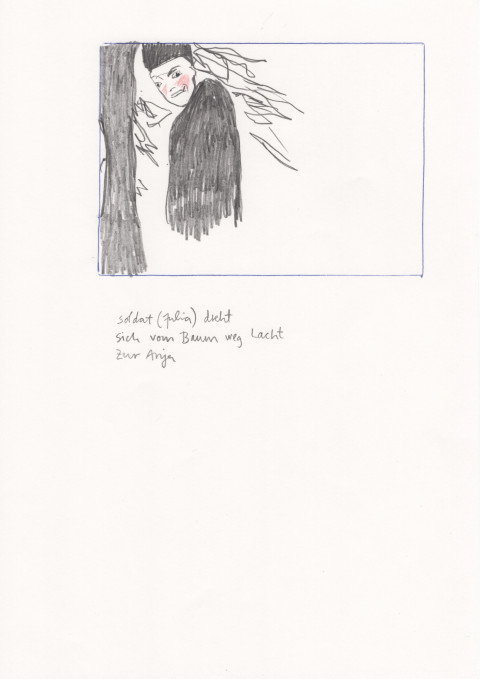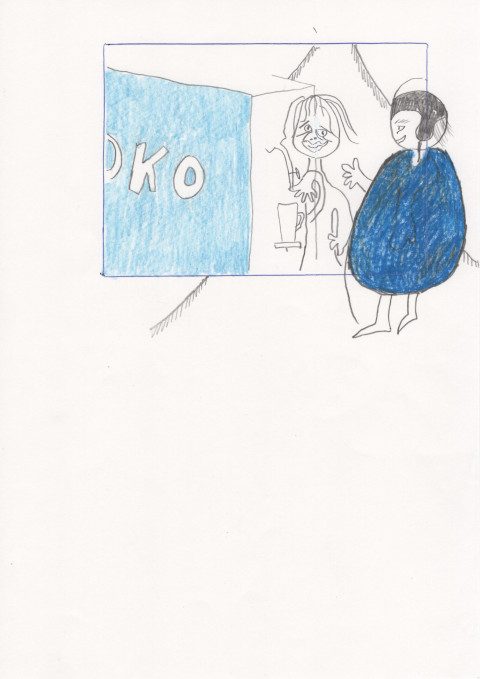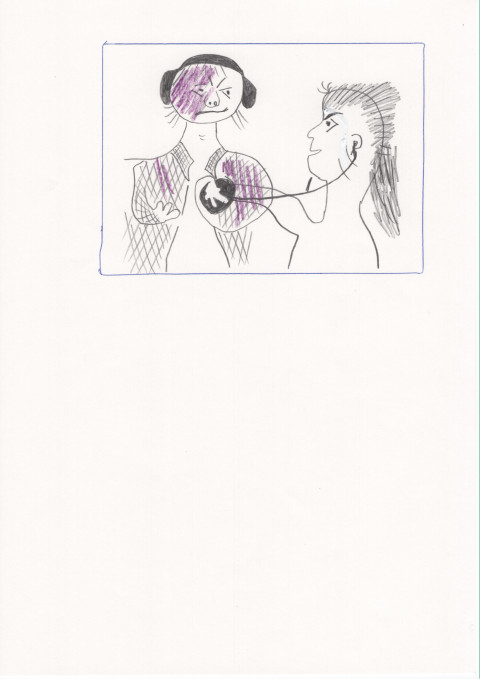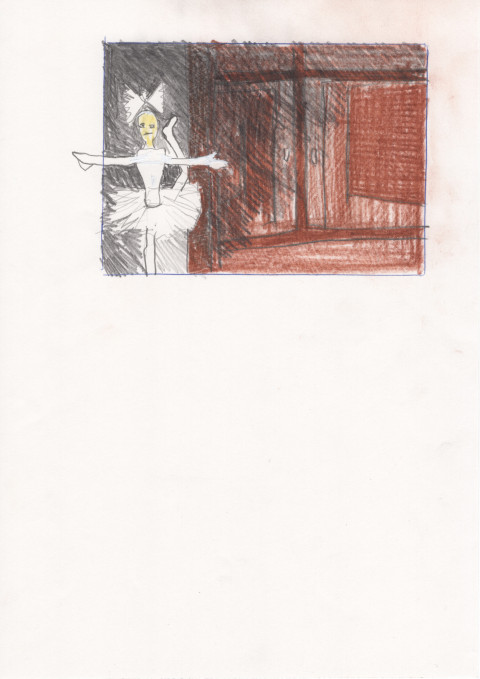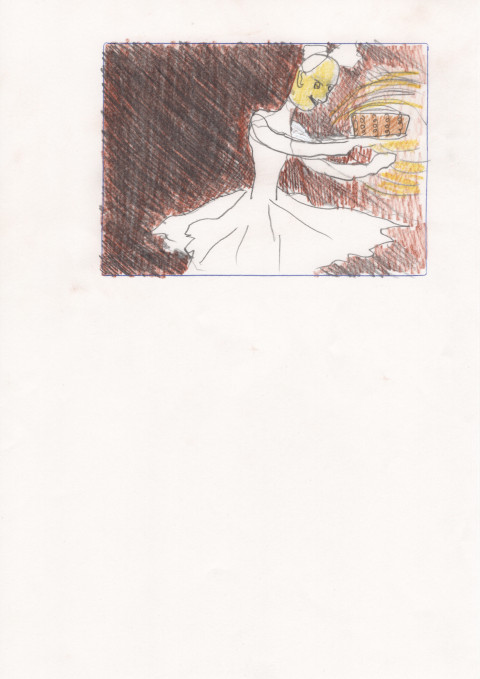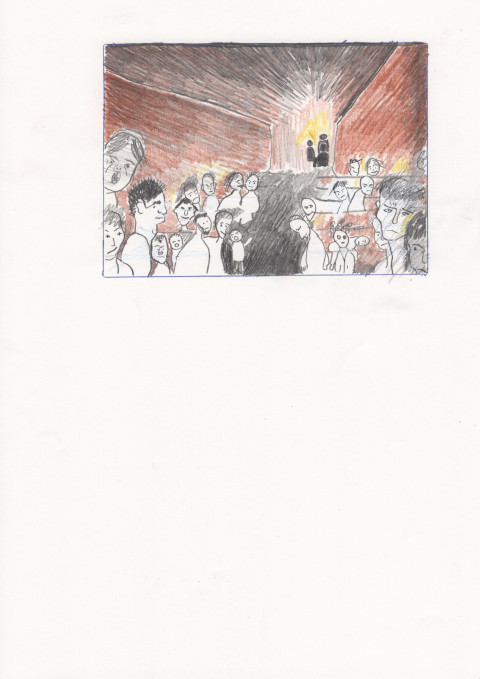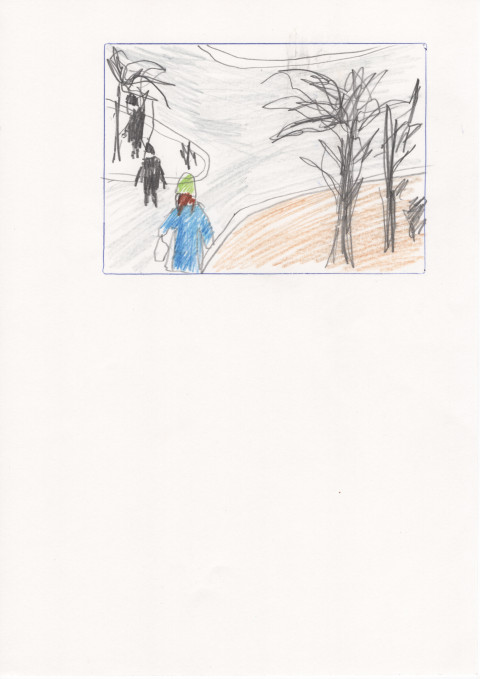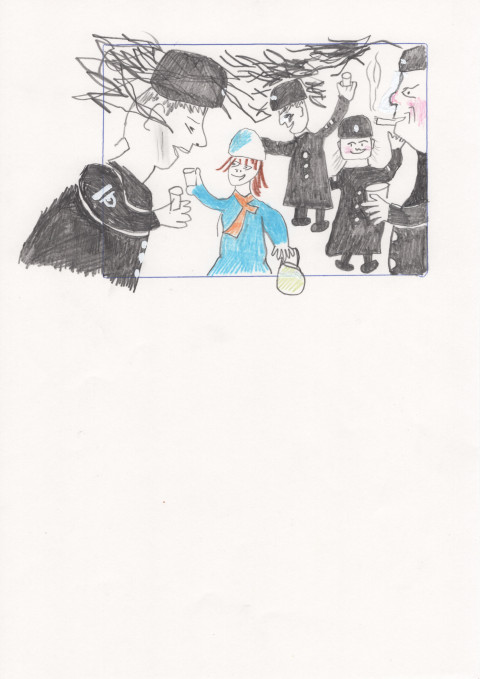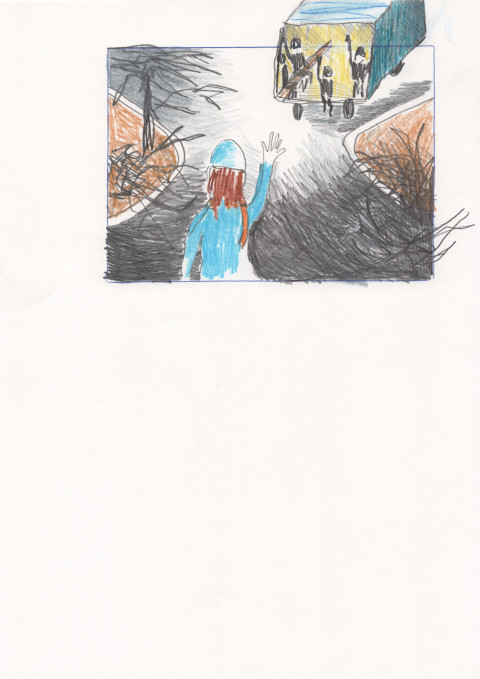GRAD
Germany/Russia, 2004
16mm, color, stereo, 22 min.
GRAD reflects female perspectives on the experiences of a community that has lost its motherland thirteen years after the implosion of the Soviet Union. Valya, the protagonist, goes on walks with her gang of girlfriends in post-communist St. Petersburg, annexing unknown, derelict, and ostensibly lost areas of the city. Staged as psychogeographic landscapes, the houses, streets, underground tunnels, and marginal neighborhoods are part of a tour guided by a hypnotic exkursavod figure. During a communal foray, the girlfriends encounter the doubles of Vladimir Ilyich Lenin, Adolf Hitler, and Chuck Norris, three emblematic figures of past ideologies of the twentieth century. Unimpressed by these tired ‘heroes,’ Valya lets the three men tell her about their real lives, where the political and private are inextricably intertwined. The birthday meal with her mother and her three adopted sisters ends in a fiasco when the youngest among them—her real sister—challenges her mother’s recollections of the gulag. Just as the doppelgangers fall out of character, the compatriots successively lapse in their solidarity. GRAD is a post-ideological film about three generations of millennial women in Russia.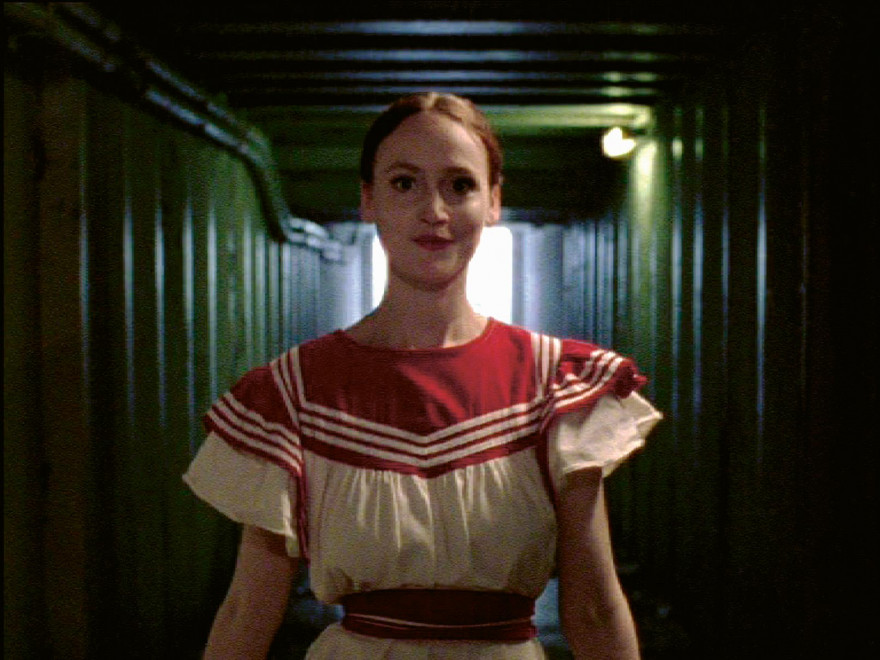
EXURSAVOD. (Directly to the camera) A warm, cordial welcome to you. I will be your guide. I love you. Yes, I love you. (Off camera, to pissing female soldier) Look at me. Here! We are in the Soviet Union and will be observing changing relations in the region. (On camera) The Soviet Union lives in all hearts that openly and happily beat in time with the world, and all who know that life here on earth would otherwise lack both meaning and purpose. We would fumble around in eternal darkness. I am grateful from the bottom of my heart. I am thankful to all who lighten the darkness with the spark of their flame. You will do that. I cordially welcome you.
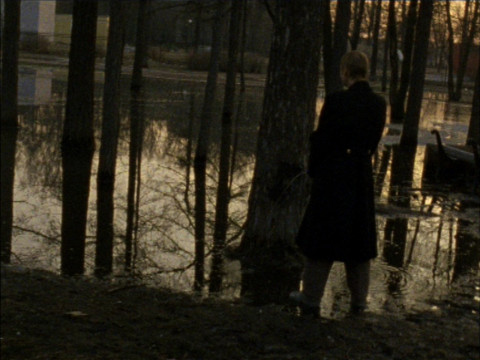
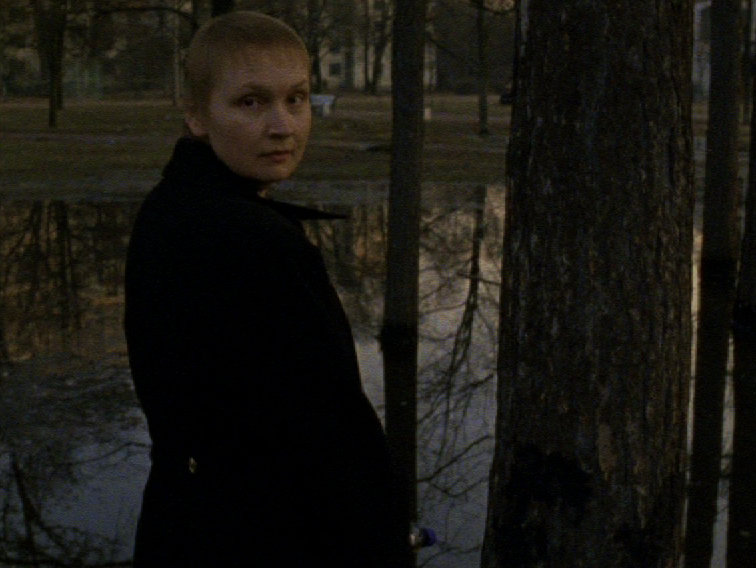
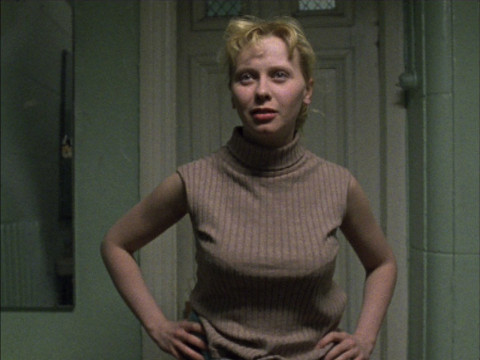
Sound. A toilet flushes and the pipes gurgle loudly and for a long time.
VALYA. So! Today we’re going out! We’re going to Moscow. To Moscow! I was in Moscow ... in ‘58.
Tanya and Anya exit respectively from small toilet stalls.
TANYA. I don’t care.
VALYA. My aunt took me there when I was
very young. I was so small that they smuggled me
in a suitcase. I liked the city a lot—so much that
I sneaked out of the suitcase and walked alone through Moscow at night. On my walk, I met many interesting people. They asked me: “What is such a little girl doing all alone here in Moscow?” I answered: “I am walking around.” That’s it.
Valya removes medical instruments from her school and sanitary bag, and she hands them out to the each of the four of them: stethoscope, glasses, bandages.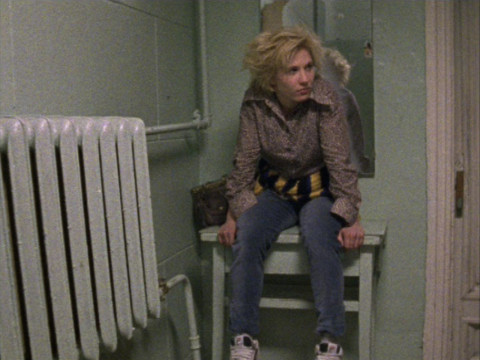
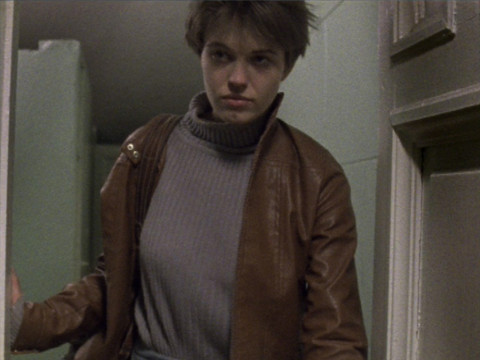
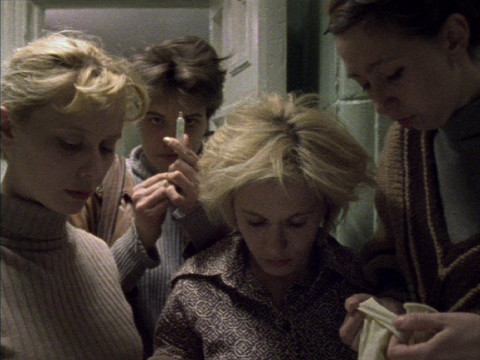
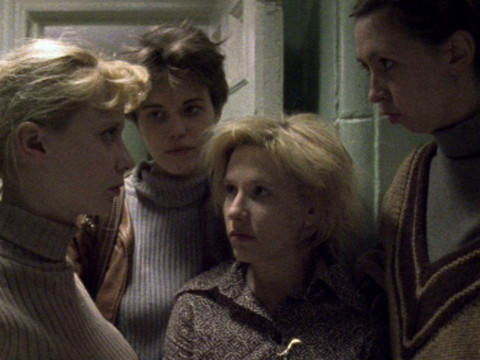
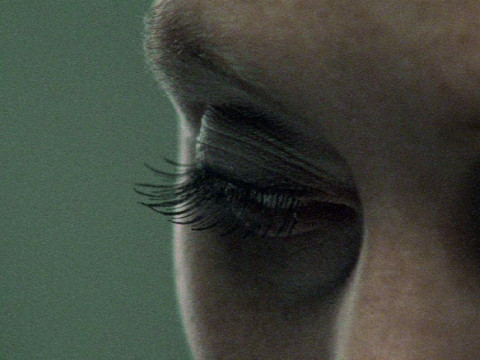
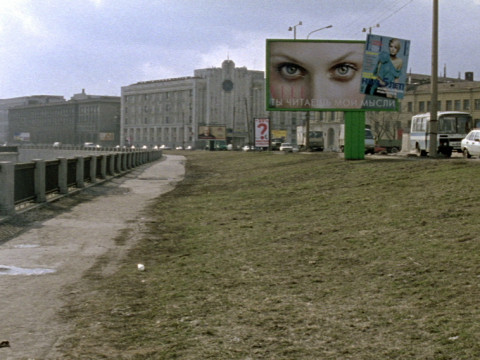
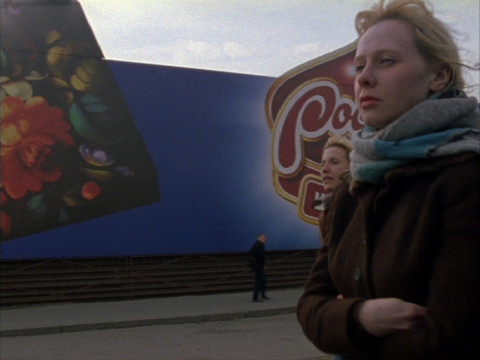
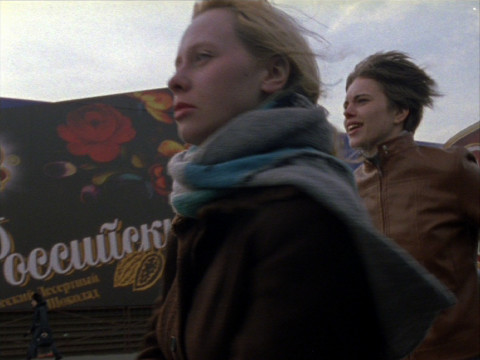
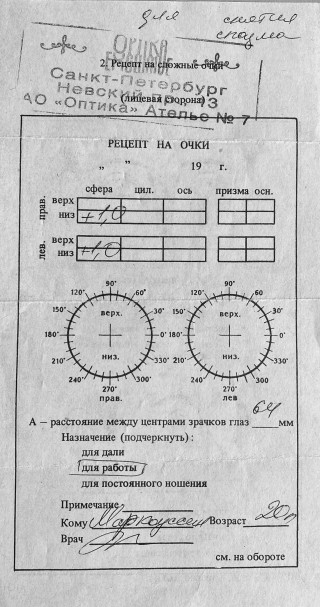
Eye test. St. Petersburg, 1993.
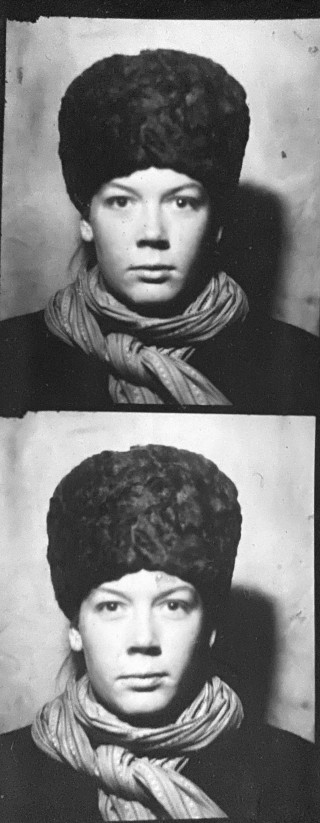
In the photo booth. St. Petersburg, 1993.
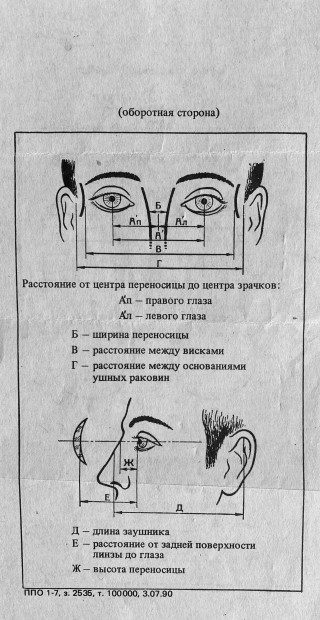
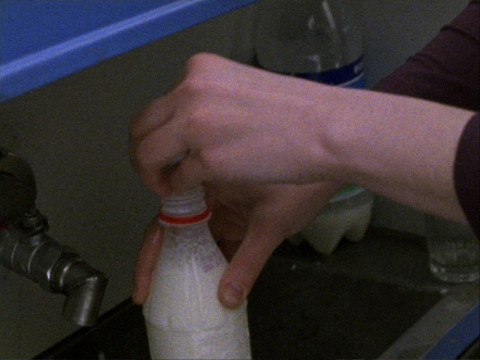
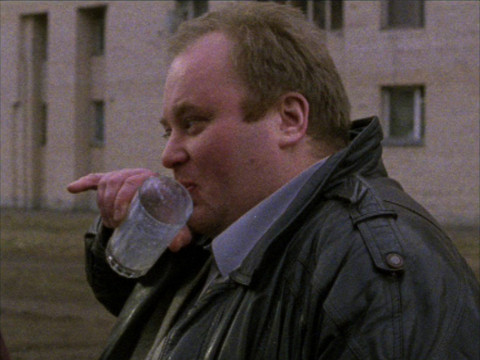
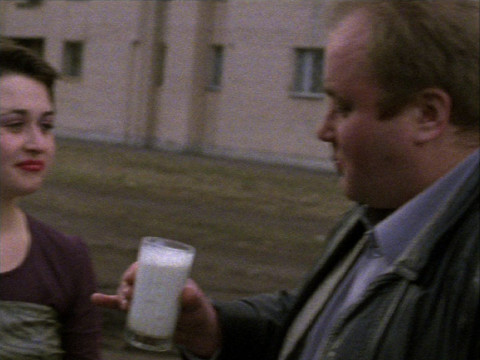
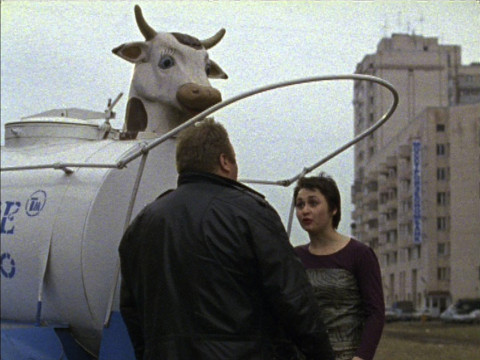
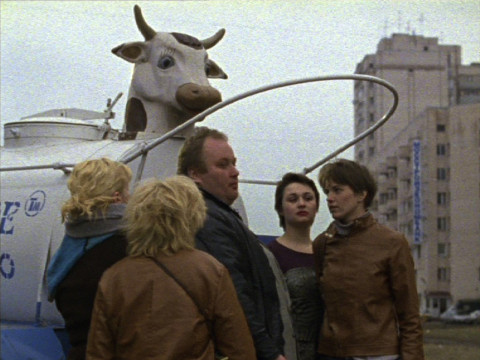
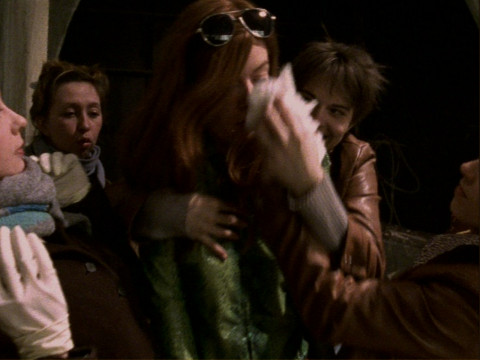
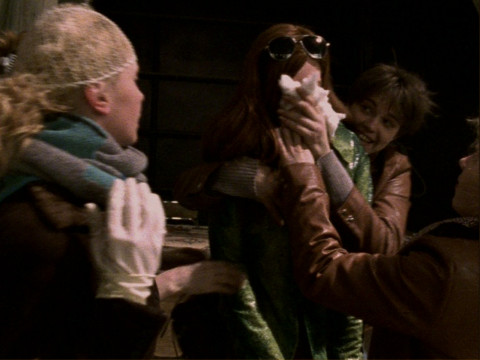
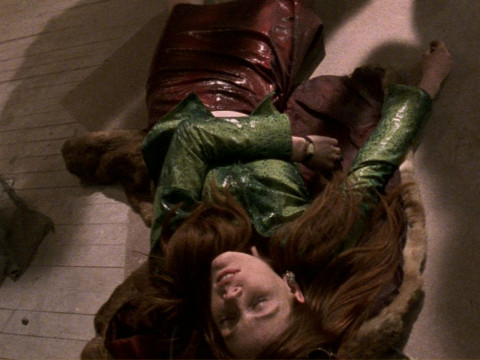

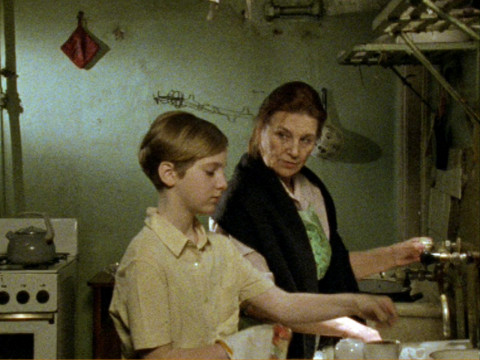
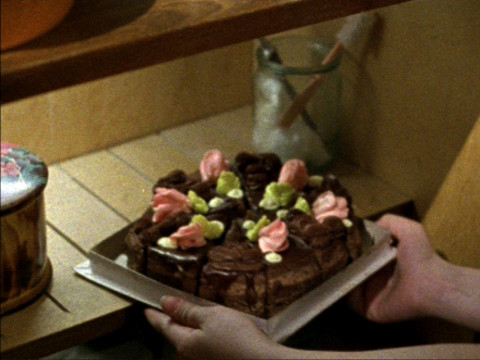
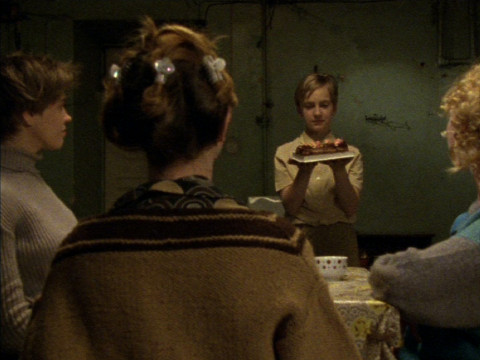
Cast and Crew:
Excursavod: Jo-Anna Hamann
Valya: Valya Mosolkova
Tanya: Tanya Sakharova
Anya: Anya Zajetseva
Lena: Lena Satkova
Mother: Ludmilla A. Golikova
Younger Sister: Masha Neumoin
Lenin: Alexander N. Gudkov
Hitler: Eduard Kapraevitz
Chuck Norris: Juri Merkulin
Man: Igor Jakolev
Milk Vendor: Marina Tumanova
Female Soldier: Marina Tarasova
Directed by: Lene Markusen
Written by: Lene Markusen, Maren Grimm
Camera Operator: Bettina Herzner
Sound: Jens Röhm
Electrician: Tim Kaiser, Felix Grimm
Production: Lene Markusen, Maren Grimm, Olga Slavina Assistant: Tatjana Rothe, Jan Schreiber
Costumes: Alica Ryabova
Make-up: Dasha Bukreyeva
Translation: Florida van Rennings, Lene Markusen
Literary Consultation: Olga Slavina
Montage: Florian Leidenberger
Sound Design & Music: Jens Röhm
Title Design: Tim Kaiser
Funded through Contributions of: Kulturbehörde Hamburg,
Michael und Susanne Liebelt Stiftung, Freundeskreis der Hochschule für bildende Künste Hamburg
Karl H. Ditze Stiftung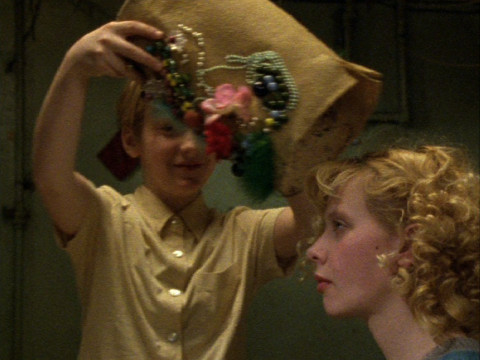
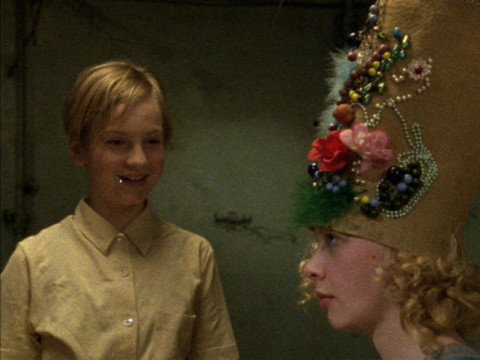
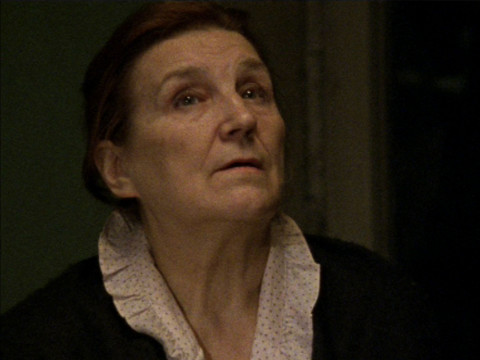
EXURSAVOD. (Off camera.) So, tell us.
The mother and the younger sister fixate immediately on the place, out of frame, from which the question has come.
MOTHER. I remember the smell of coltsfoot.
And the mountains. As if I were somehow returning.
I went back the same way. I remember the wooden watchtower, the yellow floor, and the iron beds. Lots of iron beds, one next to the other. Small iron cages. In 1937, they arrested my father. Afterward, they arrested me and my mother. I was four months old. At the start, I lived with my mother in the camp, like all children. Later they separated us, bringing us to the children’s barracks. I had a friend there: Rudik Tsirinsky. He took me to the mother’s barracks through a hole in the barbed wire. Everyone queued for food. We hid behind the door and crawled in. The barracks were empty;
all the mothers were working. We knew that but still crawled in. Like puppies, we sniffed in every corner: the iron beds, the tin canister with drinking water, the cup on a chain. It all smelled like mothers. We waited for spring to pick the flowers and eat them. We ate snowdrops. Lilochka died that winter. If only she had survived until the snowdrops came out ...
Valya sits with eyes closed, seemingly hypnotized.
YOUNGER SISTER. (Abruptly stands up, interrupting loudly) Eating snowdrops? That can’t be true. First of all, (Counting on her fingers) how did
you get out of the camp? Where do snowdrops grow? Snowdrops only grow in the forest. And secondly, “crawled into the mothers’ barracks?” How is that even possible? You were being watched. The guards would have noticed right away. If not right away, then later when you had to go to school.
With a loud scream, Valya throws her face into
the birthday cake. The younger sister turns angrily away from the others.
MOTHER. (Yelling) We were always taught: the homeland—that is your mother. We were always taught: the homeland—that is your mom.
The camera backs away from the kitchen through the long hall of the communal apartment.
Sound. The paws of a young, snuffeling dog on wooden floors.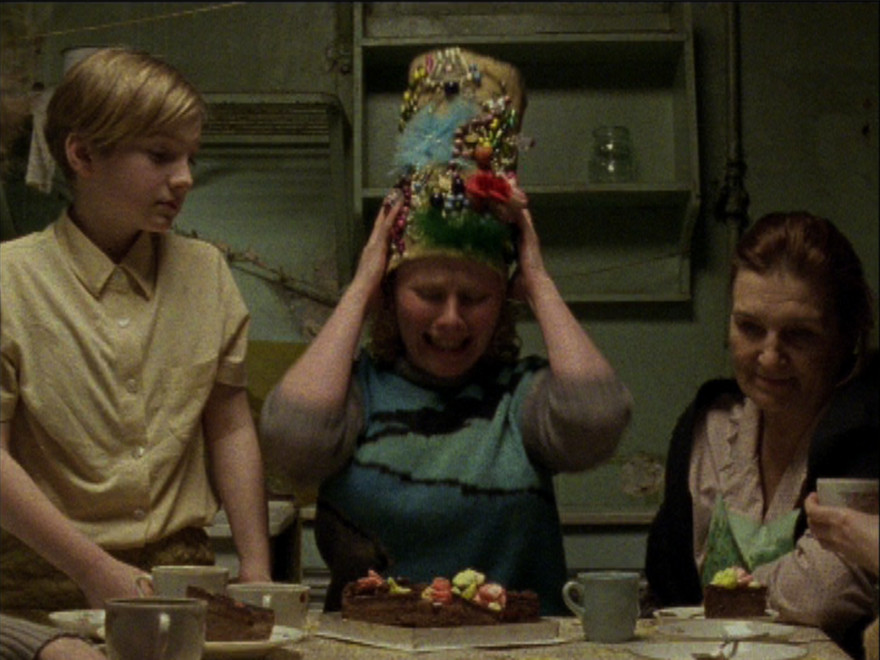
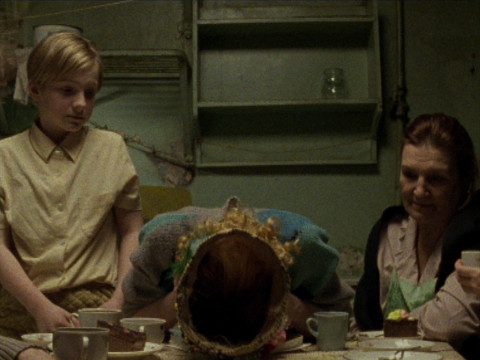
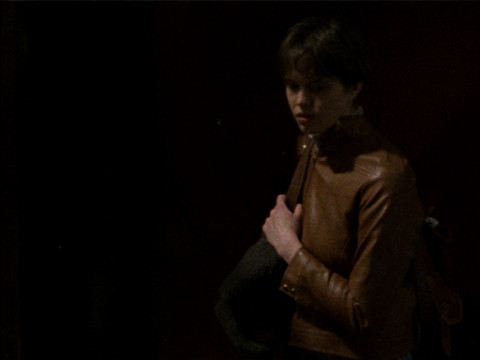
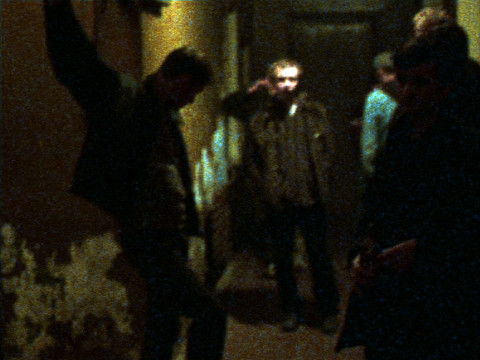
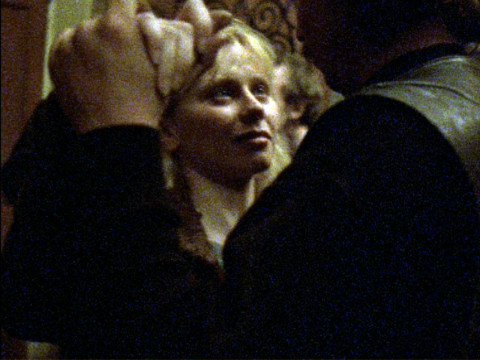
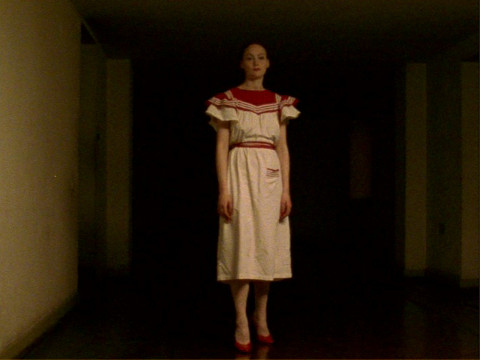
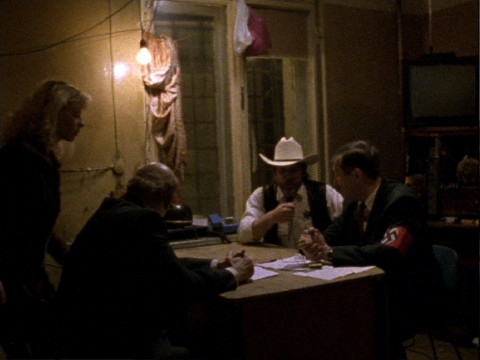
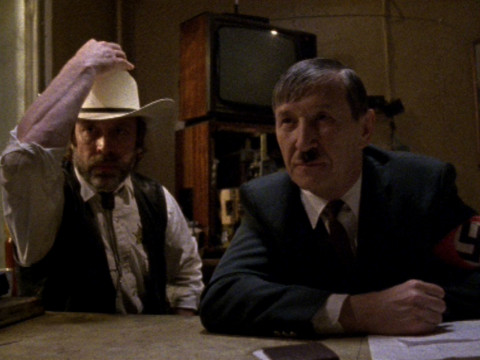
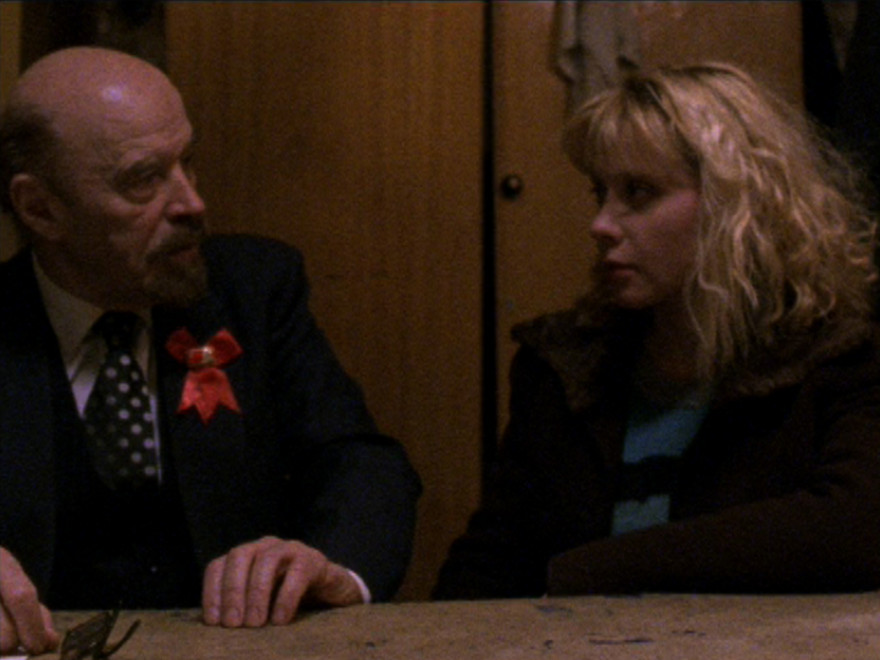
LENIN. Hello, Valya.
HITLER. Valya! Do you know who I am?
CHUCK NORRIS. (Taking of his cowboy hat. In English) I am Chuck Norris.
VALYA . (Cool) Right.
LENIN. I am a simple man. I have lived a simple life. I’ve been compared with him since my childhood. I would even say I’m part of him. When I see children, I too long to hold them in my arms, as I saw him do
so often.
HITLER. I always have this longing to hold children in my arms too.
TANYA. (Suddenly, from a corner of the room not visible until now, full of rage and accusation) They say you had a sister.
VALYA. Yes. They say you had a sister.
TANYA. Is that true?
HITLER. Maybe. I once worked on the railways as a locomotive driver. Even then, many people called me Adolf. That bothered me a lot. It was years later, after I retired, that I realized I could earn money with it. Although I’m a simple man—but I understand that you want to know about my sister. Although I myself haven’t heard anything about her.
Valya is amused that Tanya has him so cornered.
CHUCK NORRIS. Chuck Norris is a famous Hollywood actor and director. A repeat world champion in kickboxing. He has a black belt and is a millionaire and successful businessman.
Even Chuck Norris cannot persuade the women; he notes Valya’s disillusioned expression with disappointment.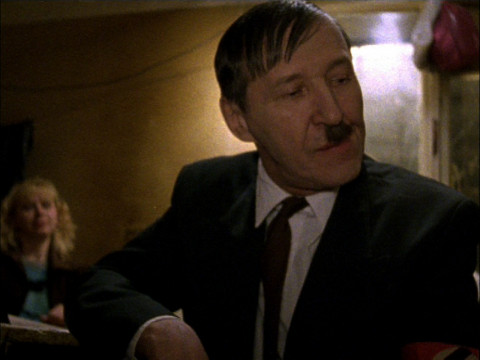
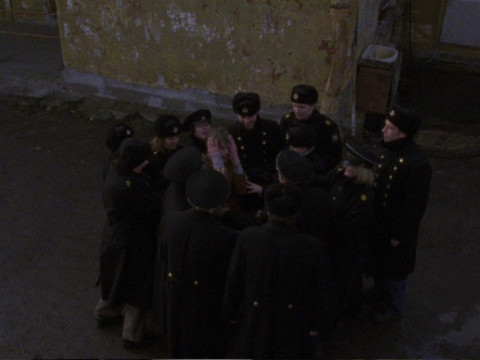
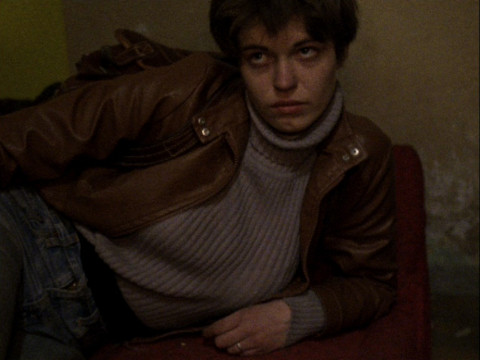
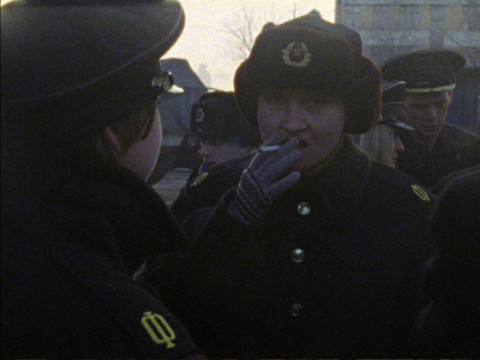
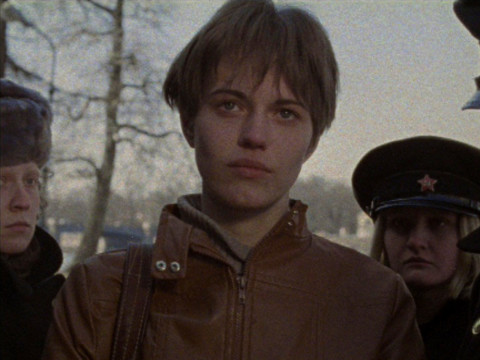
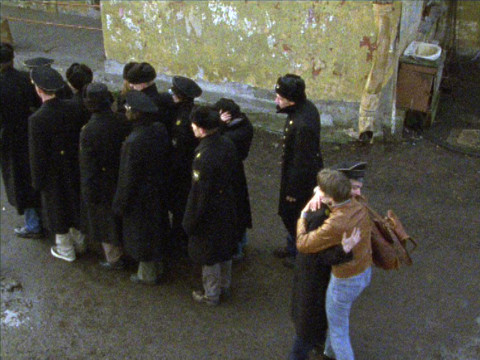
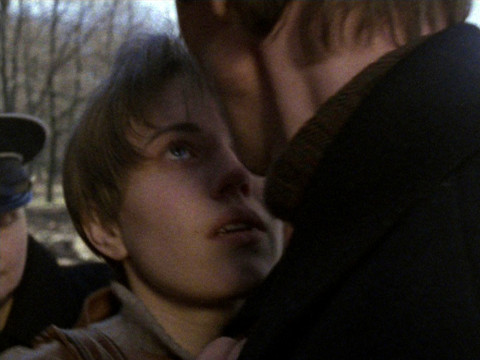
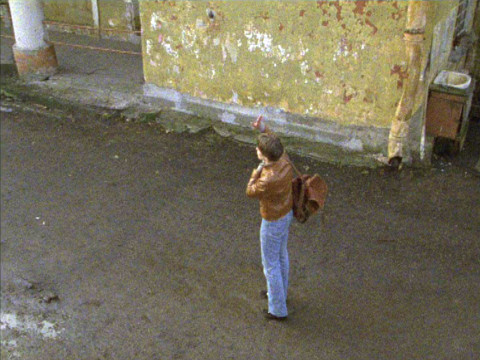
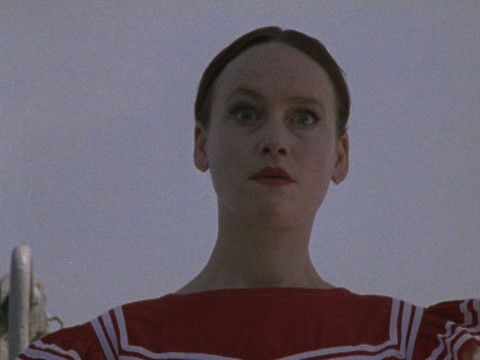
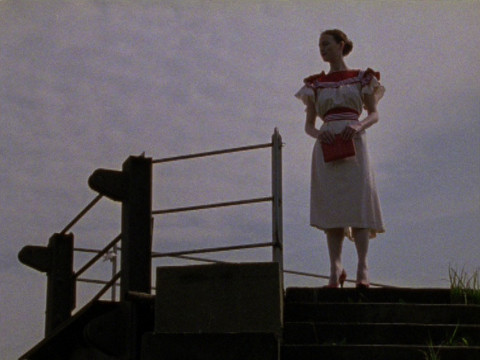
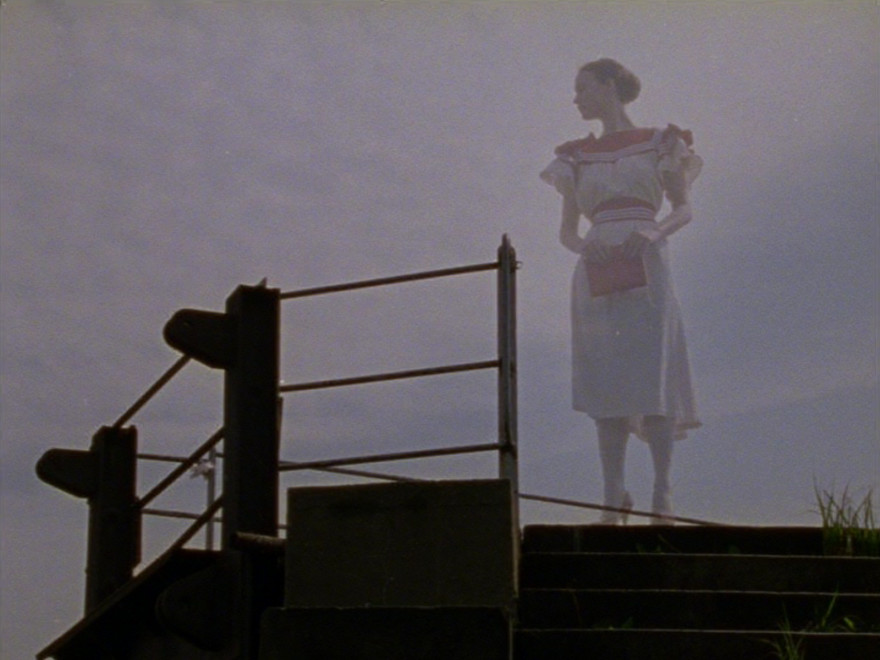
This film is in featured in the book Sisters Alike. Female Identities in the Post-Utopia
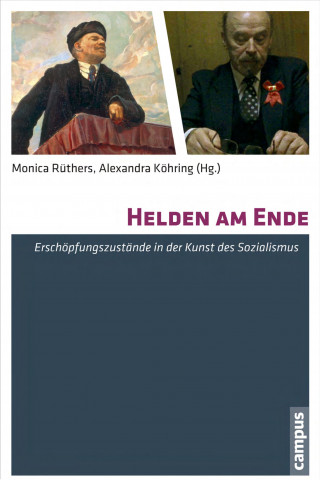
Read my text "Die Helden von GRAD. Double zwischen Rolle und Imitat" here.
